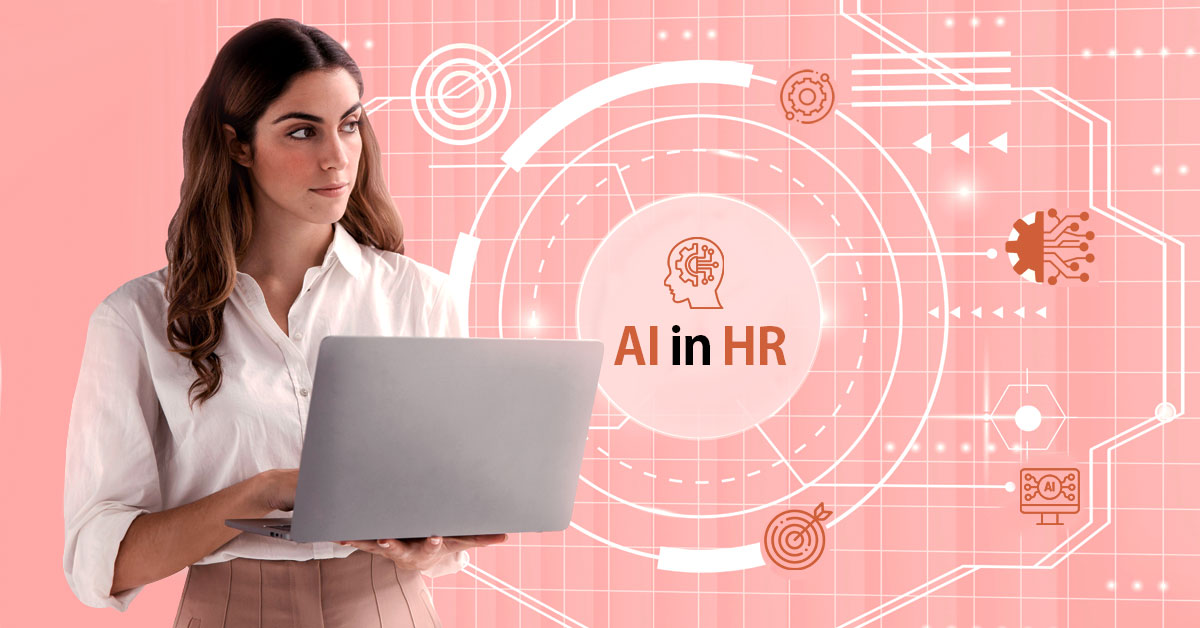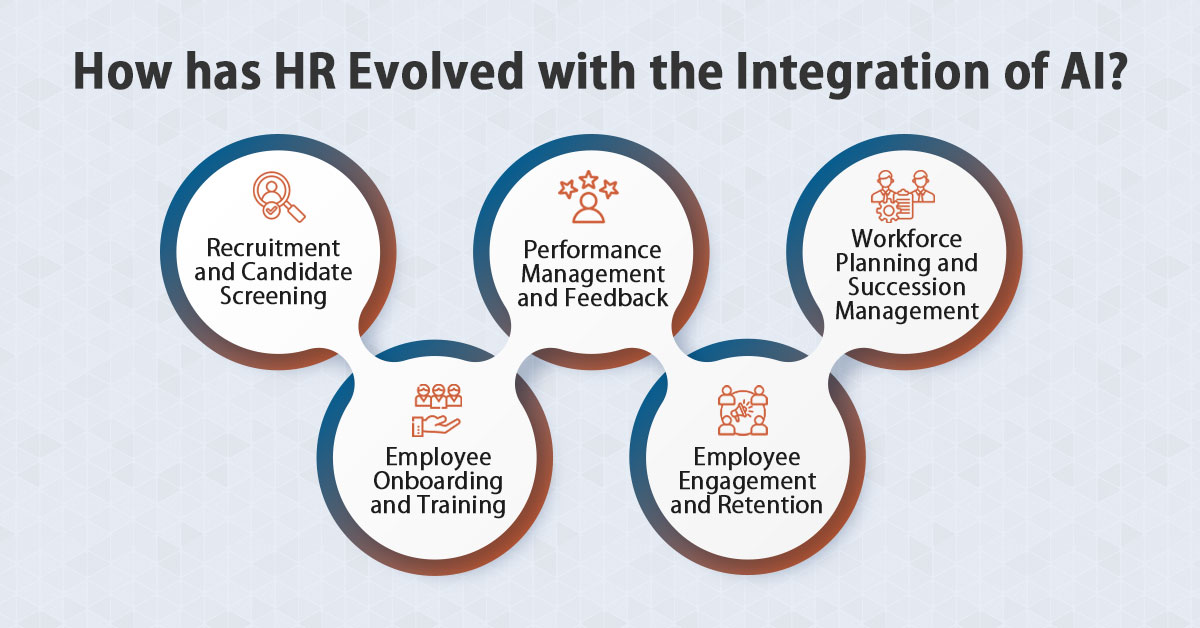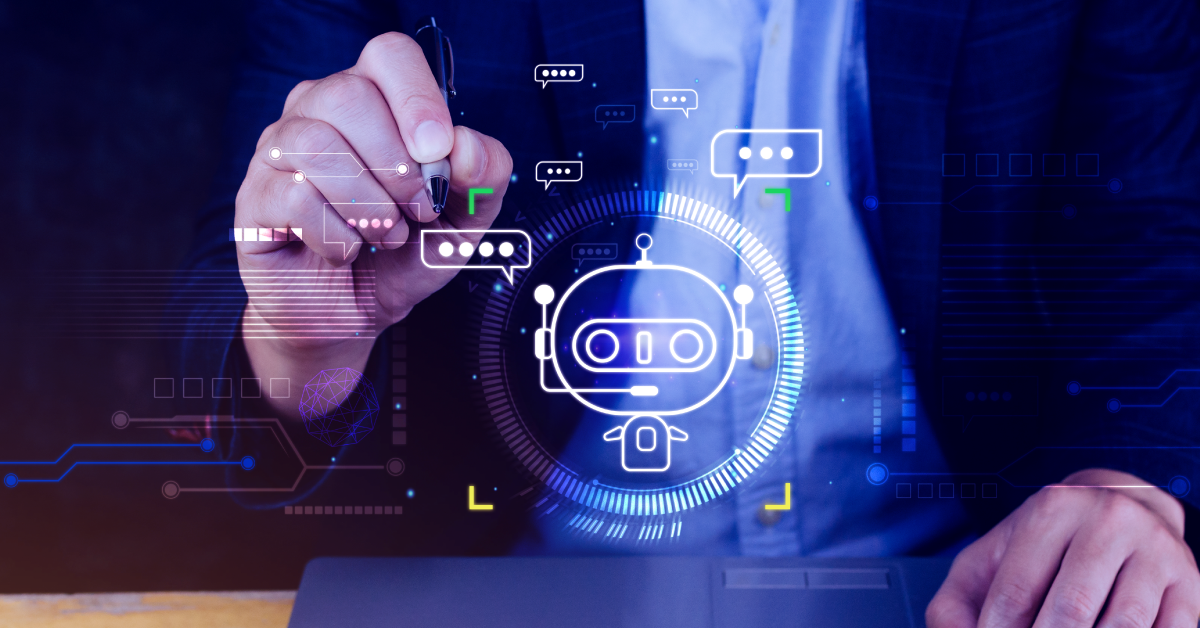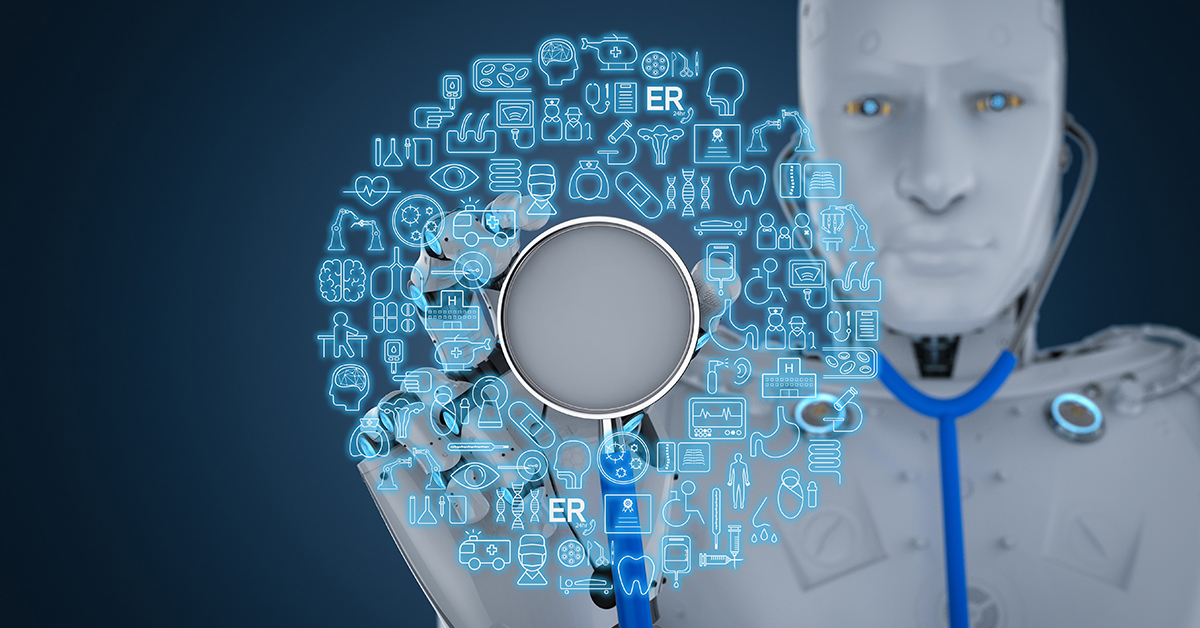AI in Human Resources: Transforming Talent Management with Intelligent Solutions

4 min read
The field of Human Resources (HR) is undergoing a significant transformation. Companies constantly seek ways to streamline their processes and gain a competitive advantage. One area for innovation is talent management, and the integration of artificial intelligence (AI) into human resources (HR) practices has the potential to revolutionize how organizations attract, develop, and retain top talent.
What is Artificial Intelligence in HR?
The term Artificial Intelligence in Human Resources, or AI in HR, refers to the use of AI tools and technology in a variety of HR processes and activities. The goal is to improve and simplify conventional HR tasks, making them more effective, data-driven, and efficient. AI in HR has several uses, from performance management and employee engagement to hiring and onboarding.
How has HR Evolved with the Integration of AI?
HR departments have historically been responsible for hiring, onboarding, training, performance reviews, and employee engagement. In the past, these procedures have taken a long time and frequently relied on subjective assessment. However, HR procedures have shifted pattern due to the arrival of AI-powered technologies.

-
Recruitment and Candidate Screening
The hiring process is one of the main areas where AI is advancing significantly. Conventional techniques for conducting interviews and reviewing resumes are biased and time-consuming. AI-powered solutions are currently being used to automate candidate screening and speed up hiring. In addition to evaluating resumes and capabilities, AI machine learning algorithms can also forecast if an applicant fits the organization’s culture. It helps find the most qualified applicants based on objective criteria and speeds up the recruiting process.
-
Employee Onboarding and Training
AI is still very important for staff onboarding and training after choosing the right candidates. When customizing the orientation process with intelligent onboarding tools, employee demands, and preferences can be considered. Natural language processing (NLP) -driven chatbots can guide new hires through onboarding and offer immediate support by responding to their questions. AI-driven training platforms can also evaluate employee performance and recommend tailored training courses to improve abilities and pinpoint problem areas.
-
Performance Management and Feedback
Annual reviews and subjective evaluations are common components of traditional performance reviews. Artificial intelligence is revolutionizing performance management by offering real-time insights into employee performance. Data analytics and artificial intelligence (AI) algorithms may monitor KPIs, examine patterns, and provide predictive analytics to spot any performance problems. AI-powered feedback systems can also enable ongoing feedback, which promotes a culture of development and progress.
-
Employee Engagement and Retention
Retention and employee engagement are essential to the success of a firm. Artificial Intelligence (AI) techniques predict future attrition risks, identify factors influencing job happiness, and assess employee attitudes. AI may assist HR professionals in taking proactive steps to improve employee engagement and lower turnover by analyzing data from various sources, such as surveys, communication channels, and performance metrics.
-
Workforce Planning and Succession Management
AI is essential to strategic workforce planning and succession planning. HR can anticipate future workforce demands and identify high-potential individuals for leadership roles with the help of AI algorithms that analyze market trends and historical data. Through this proactive approach, organizations may handle changing business demands by having the proper talent on hand.
How is AI being incorporated into HR practices?
AI integration into HR procedures solves current issues and sets up businesses for long-term success in a business environment that is changing quickly. The benefits include reduced costs, increased productivity, and the capacity to make more strategic and informed decisions, all of which eventually help create a more diverse, engaged, and agile workforce. The incorporation of AI in HR processes offers numerous advantages:
-
Cost and Time Savings
HR professionals can concentrate on strategic goals by automating repetitive operations like data analysis and candidate screening, ultimately saving time and lowering costs. Increased efficiency in these procedures results in faster response times for HR tasks like onboarding and recruitment.
-
Improved Decision-Making
AI makes better hiring, performance reviews, and replacement strategies possible, which gives HR teams data-driven insights. Recruitment decisions can be made more strategically and intelligently when predictive analytics analyses candidates more accurately.
-
Enhanced Employee Experience
AI-driven chatbots and self-service portals offer instant support to staff members, enhancing their overall experience and lowering administrative workloads. Higher employee engagement and satisfaction levels correlate with prompt information access and individualized support.
-
Increased Diversity and Inclusion
Hiring decisions can be made more inclusive and diverse using AI algorithms to help remove prejudices. AI reduces the effect of unconscious prejudices by concentrating on objective standards fostering impartiality in the hiring and talent management procedures.
-
Strategic Workforce Planning and Flexibility
In order to maintain workforce alignment with the organization’s strategic objectives, AI helps HR adapt to changes in industry demand and market trends. AI’s insights enable HR to allocate talent strategically where it is most required, maximizing resource utilization and meeting changing business needs.
-
Continuous Improvement through Analytics
AI-driven analytics build ongoing feedback loops that enable HR to evaluate the performance of different talent management approaches and adjust for ongoing development. HR is guided by predictive analytics while creating long-term plans, which helps businesses remain ahead of the curve in workforce planning and personnel management.
The Future of AI in HR
Artificial Intelligence (AI) in Human Resources (HR) can completely change how businesses handle their workforces in the future. AI in HR can transform several facets of personnel management as technology develops completely. The field is changing quickly, from highly customized employee experiences and enhanced hiring procedures to ongoing education supported by advanced AI-driven systems, including AI-based learning management systems. HR methods increasingly include predictive workforce planning, ethical AI techniques, and improved employee well-being.
The field of Natural Language Processing (NLP) is revolutionizing HR communications by facilitating more conversational and intuitive interactions. The HR industry is about to radically transform because of AI-powered performance reviews, dynamic team management, and global workforce solutions. In the future, AI and humans will work together harmoniously to create workplaces that are highly responsive to each person’s unique needs and goals while also providing previously unattainable insights for strategic decision-making. AI in human resources promises to provide a workforce management environment that is more flexible, inclusive, and nimble.
Conclusion
In conclusion, artificial intelligence holds great promise for revolutionizing talent management procedures in human resources departments. AI-powered solutions can improve decision-making, expedite procedures, and increase organizational effectiveness in various contexts, including hiring, candidate screening, performance management, and employee development. However, organizations must consider ethical issues and assurance openness when integrating AI into HR. Organizations may maximize the value of their human capital and obtain a competitive advantage in today’s quickly changing business environment by thoughtfully and ethically implementing AI.
Published: December 14th, 2023




